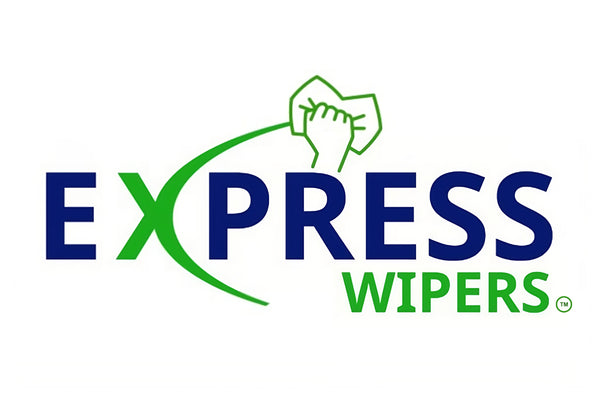When it comes to cleaning, whether on a domestic or industrial scale, the debate between cotton and synthetic materials is one that merits attention. We've taken a look at the pros and cons of using cotton over synthetic materials, focusing on aspects like decomposition, recycling, and cost.

Pros of Using Cotton for Cleaning:
1. Biodegradability:
Cotton, being a natural fibre, holds a significant advantage in terms of biodegradability. Unlike synthetic materials, cotton decomposes more easily, contributing to a reduction in long-term environmental impact.
2. Renewable Resource:
Derived from the cotton plant, cotton stands out as a renewable resource. This inherent quality makes it a sustainable choice, especially when compared to synthetic materials that often rely on non-renewable resources.
3. Recyclability:
The recyclability of cotton adds to its environmental appeal. Repurposing cotton materials not only reduces waste but also contributes to a more circular economy, aligning with the principles of sustainability.
4. Less Pollution:
Cotton production generally involves fewer harmful chemicals compared to the manufacturing of synthetic materials. This results in lower levels of water and air pollution, making cotton a cleaner option for the planet.
5. Hypoallergenic Properties:
Cotton's hypoallergenic nature makes it a preferred choice for individuals with sensitive skin or allergies. It offers a gentler alternative compared to some synthetic materials.
6. Cost-Effective:
In the realm of domestic cleaning, cotton emerges as a cost-effective option. It provides an affordable yet quality alternative, making it an attractive choice for budget-conscious consumers.
7. Absorbency:
Cotton's high absorbency is a valuable trait for cleaning tasks. Its ability to absorb and hold liquids effectively makes it a practical choice for various cleaning applications.
Ideal Cotton product for cleaning which utilises all of these properties: Premium Lint Free White Sheeting Cleaning Rags

Cons of Using Cotton for Cleaning:
1. Mould Susceptibility:
Cotton's susceptibility to mould and mildew growth is a concern, especially if not properly dried after use. This aspect requires careful consideration, especially in humid environments.
2. Shrinking:
Cotton's tendency to shrink when exposed to heat is a point to note. In applications where maintaining size and shape is crucial, this characteristic may pose a challenge.
3. Pesticide Use:
Conventional cotton farming often involves the use of pesticides, raising environmental concerns. However, the availability of organic cotton addresses this issue by offering a more eco-friendly alternative.
4. Water Intensive:
Cotton cultivation is known to be water-intensive. In regions facing water scarcity, this could be a significant drawback compared to using water-efficient synthetic materials.
In conclusion, while cotton boasts environmental advantages due to its biodegradability, renewability, and recyclability, it does have some limitations in terms of durability and susceptibility to certain issues. The cost-effectiveness of cotton makes it an appealing option for domestic cleaning. By opting for cotton, we can take a step towards a cleaner, more sustainable future in our cleaning practices.

